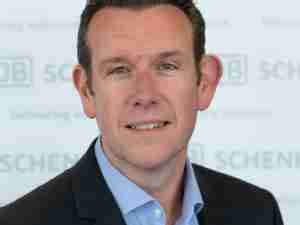Julian Keeling, President & CEO at Consolidators International, Inc., an international air cargo wholesaler whose primary customers are midsize freight forwarders, states that his customer list "has grown 50% during the past two years. The substantial growth at our own company could not have occurred without the healthy expansion of our customers' international business," asserted Keeling.
The CII executive's belief that many international mid-sized forwarders are demonstrating significant and in some instances, record increases in revenues and shipment counts, is buttressed by his studies of US and non-US based consolidators.
"Indigenous forwarders such as Australia's Pacific Network, UK's Uniserve and New Zealand's Mondiale, to name a few, are grabbing huge market share from their larger global competitors," stated Keeling.
"Their customer lists read like a veritable 'Who's Who' of the biggest multi-national corporations."
Keeling ascribes the growth of the mid-sized forwarder to one overwhelming reason; personal service. "While the huge, multi-billion dollar forwarders boast of their advanced technology and supplementary services like warehousing, inventory control, etc., mid-sized forwarders are stressing personal service--which remain now and forever the heart of the transportation industry."
"Most mid-sized forwarding executives have a genuine passion for the business of moving freight," continued Keeling. "They are on call often 24-hours-per-day, seven-days-a-week to respond to customer requests or complaints. Contrast this gung ho attitude with the faceless leaders of the big multi-nationals who are kept well hidden in their bunkers with little or no contact with the real world of the shipping business."
The CII chief asserts that airlines are more eager than ever before to work with mid-sized forwarders. "A few airlines still like to think about 'strategic alliances' with a small number of big forwarders, but the majority want to expand their list of mid-sized customers and develop a strong working relationship with UPS, FedEx, Air New Zealand and British Airways as an example of mutually profitable carrier-forwarder alliances. "They see CII as a great customer because of our reach in representing so many small to mid-sized players in the cargo game," averred Keeling.
He noted that CII's active customer list comprise more than 400 separate forwarders, the overwhelming majority of whom are small to mid-sized. "We now handle at least 50% more consolidators than two years ago," said Keeling. "If they didn't have business, they wouldn't be using us."
Keeling also credits the success of many mid-sized forwarders to the Internet. "Smart forwarders are combining the technology of the Internet with strong personal service. It's an unbeatable combination.
That is why so many forwarders in the $25 to $150 million revenue range are reporting healthy, profitable growth."
The CII executive predicts continued expansion for the mid-sized forwarder. "Their greatest danger is forgetting the importance of personal service as they grow larger," he concluded.









